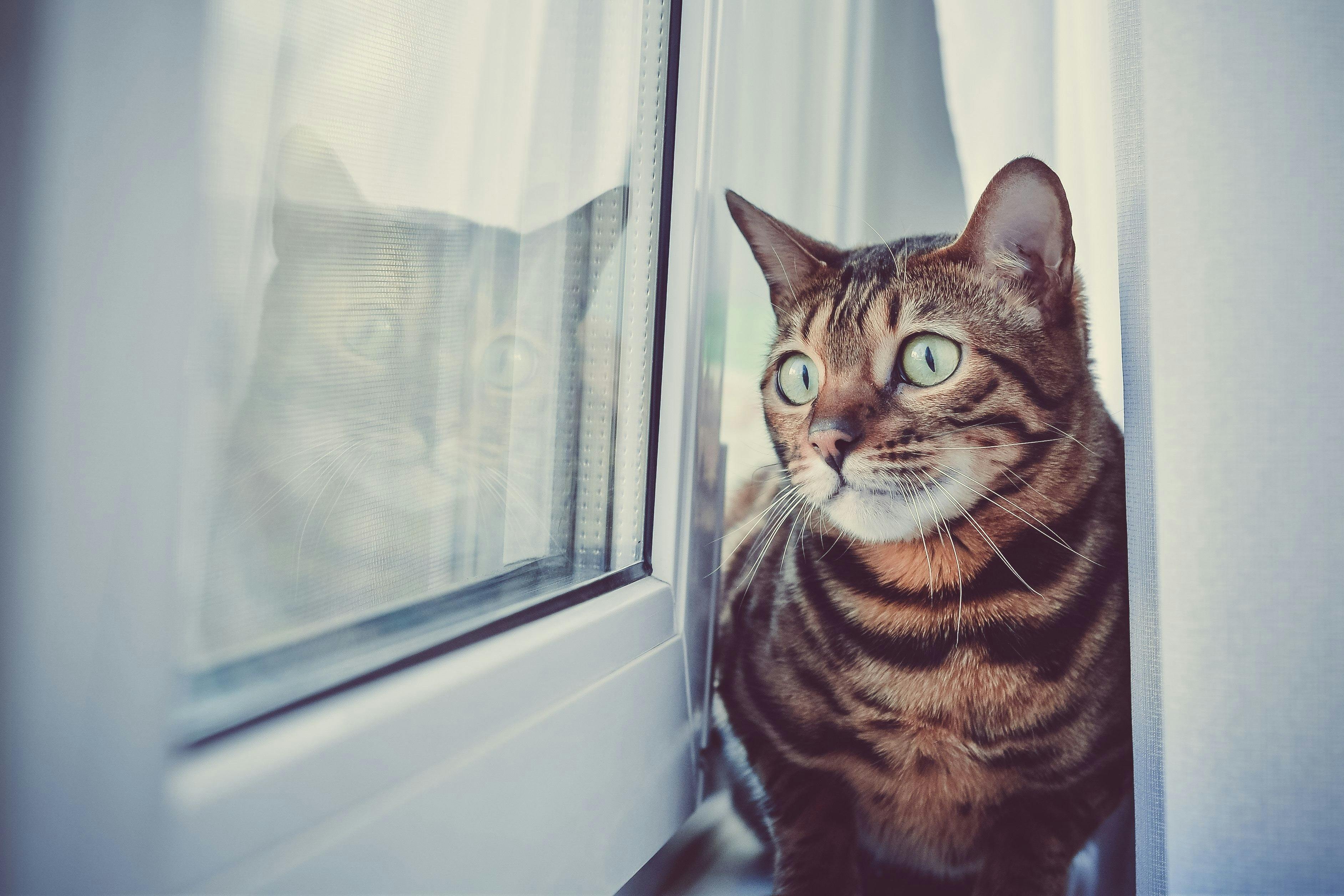Asthma is a long-term inflammatory disease of the airways of the lungs. It is fairly common in people, but we often overlook the fact that it occurs in cats as well. The condition is factored both by genetics and environment, and the clinical presentation closely resembles that of the human disease. At times it can be tricky to recognize an asthmatic kitty, so prepare yourself to learn more about asthma in cats with Basepaws.
Background information
Asthma is a chronic inflammatory disease of the airways of the lungs. The long-term inflammatory state of the conducting zone of airways increases the contractibility of the smooth muscles around them. This narrows the airways and leads to frequent but reversible airflow obstructions and common bronchospasms. During an asthma attack, the walls of a cat's airways thicken and constrict, disrupting breathing. The lungs of affected cats also discharge mucus into the airways which causes coughing and wheezing. Many cats will cough only slightly, but chronically, which may not concern their cat parents. However, asthma can be life-threatening when it flares up, so any coughing in a cat should always be reported to its vet.

Causes
Asthma is generally the result of a combination of genetic and environmental factors. The genetics of asthma have not been clarified just yet for cats. In humans, it was previously found that if one identical twin is affected, there is a 25% chance that the other will be affected as well, indicating genetic implications (Douglas et al, 2010). By 2005, 25 different genes had been associated with asthma in people (Ober et al, 2006). In cats, asthma is thought to be most commonly a result of an allergic bronchitis. This happens when your cat's lungs become inflamed due to an inhaled allergen, which in turn leads to chronic inflammation. Your cat's health status, exposure to stress, obesity or parasites, can all influence asthmatic reactions. Although the genetic background of feline asthma isn't clear, it had been noted that some cats are at a higher risk of the condition. Vets from Pets WebMD report that cats between the ages of two and eight years are at the highest risk, as well as female cats, and Siamese and Himalayan breeds.
Symptoms and diagnosis
The symptoms of asthma in cats include coughing and wheezing, squatting and hunched shoulders when breathing (when a cat is gasping for breath), gagging (from excess mucus, which may be puked out), breathing with an open mouth, weakness, lethargy and blue lips and gums. The symptoms are more obvious during an asthma attack, but some cats with milder cases of the disease may only show subtle signs. It is important to always report to your cat's vet if you notice any of the symptoms described above. Diagnosing asthma in cats can be difficult because the symptoms resemble the symptoms seen in some other diseases, such as heart-worm, pneumonia or even heart failure. The vet will usually conduct radiographic analysis, blood work, parasite tests and analyses of bronchial secretions in order to deliver the diagnosis.

Treatment and prognosis
Just like in people, asthma cannot be cured, but it can be controlled. Different therapeutic approaches are available which can help open up the airways, relieving the breathing and reducing the inflammatory state. Medicine will be prescribed by the vet, which can be applied with an inhaler like in people. Because feline asthma has been linked to different environmental factors, there are certain things you can do to try and prevent your cat from developing asthma and reduce the chance of asthma attacks. These include regular tests for parasites, environment management by means of stress reduction and allergen control (avoid using perfumes, room fresheners etc. in close proximity to your cat, avoid dusty cat litter, make sure the air isn't too dry), ensuring a healthy and balanced diet for your cat and managing its weight within a healthy range.

Asthma is a long-term inflammatory disease of the airways of the lungs. Symptoms in cats can be very subtle, and they usually highly resemble symptoms observed in other feline diseases. For this reason, if your cat ever shows any symptoms described above, always consult with a vet immediately. Furthermore, asthma in cats is often related to an allergic reaction, health status and parasitism.
Citations:
1. Elward, Graham Douglas, Kurtis S. (2010). Asthma. London: Manson Pub. pp. 27–29. ISBN 978-1-84076-513-7. Archived from the original on 2016-05-17.
2. Ober C, Hoffjan S (2006). "Asthma genetics 2006: the long and winding road to gene discovery". Genes Immun. 7 (2): 95–100. doi:10.1038/sj.gene.6364284. PMID 16395390.
